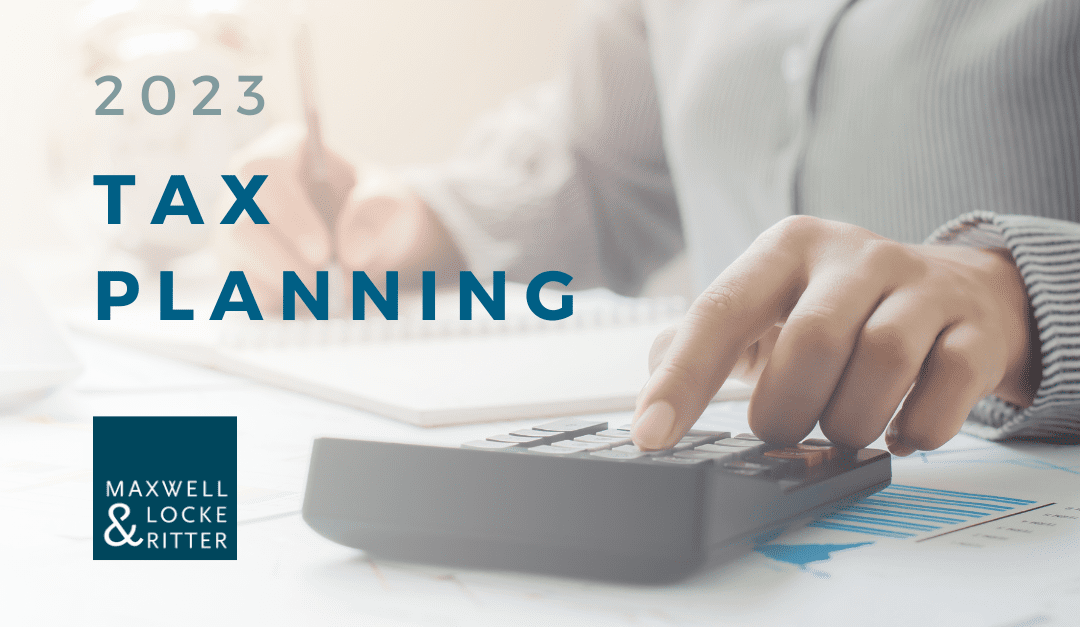Summary
Owner Resource Group is pleased to offer this valuable Year-End Tax Planning Advice from our friends at accounting firm Maxwell, Locke and Ritter. Hopefully, these tips will help prepare you and your business for success as we all navigate new and proposed legislation that could impact your tax planning strategies.
Dear Clients and Friends:
The end of the year is often a favorable time for tax planning, and any year-end tax strategies should take the latest tax developments into account.
While 2023 has not seen any major tax legislation to date, Congress has enacted several significant tax bills in recent years beginning with the Tax Cuts and Jobs Act (TCJA) of 2017. Many provisions in the TCJA are effective for 2018 through 2025. Soon after, the Setting Every Community Up for Retirement Enhancement (SECURE) Act was signed into law, designed primarily to enhance retirement savings.
During the height of the pandemic, a trio of laws—the Coronavirus Aid, Relief, and Economic Security (CARES) Act, the Consolidated Appropriations Act (CAA) and the American Rescue Plan Act (ARPA)—provided various forms of tax relief. Another law passed in the summer of 2022, the Inflation Reduction Act (IRA), created both new opportunities and obstacles for certain individuals and business entities.
Finally, late in 2022, the law dubbed “SECURE 2.0” built on the foundation of the initial SECURE Act and added several new layers.
Keeping all of this in mind, we have prepared the following 2023 Year-End Tax Planning Letter. For your convenience, the letter is divided into three sections:
- Tax Planning for Individuals
- Tax Planning for Business Owners
- Tax Planning for Investors and Estate & Gift Planning
The concepts discussed in this letter are intended to provide a general overview of year-end tax planning based on current federal tax law and are subject to change, including the possibility of new tax legislation between now and year-end. We recommend you review your personal situation with a tax professional.


